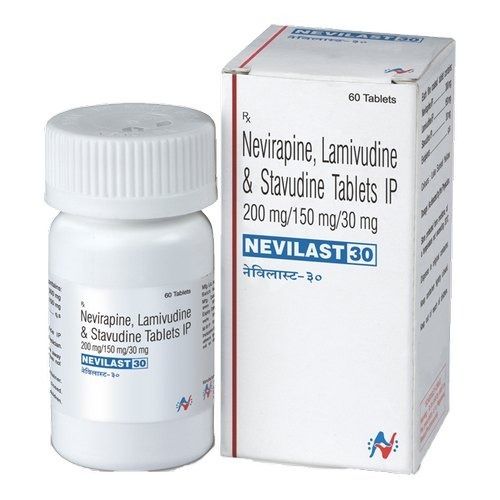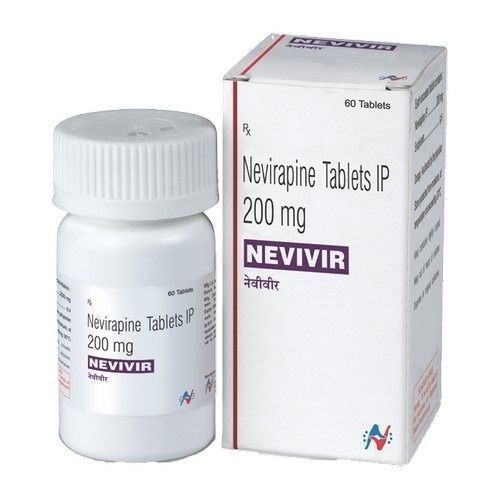Nevirapine Lamivudine Stavudine Tablets
उत्पाद विवरण:
मूल्य और मात्रा
- 5
व्यापार सूचना
- प्रति सप्ताह
- दिन
उत्पाद वर्णन
The combination tablet containing Nevirapine 200 mg, Lamivudine 150 mg, and Stavudine 30 mg is an antiretroviral medication used in the treatment of HIV infection. Let's break down each component:
-
Nevirapine (200 mg): Nevirapine is a non-nucleoside reverse transcriptase inhibitor (NNRTI). It works by blocking the action of reverse transcriptase, an enzyme that HIV needs to replicate. By inhibiting viral replication, nevirapine helps to reduce the amount of HIV in the body, known as the viral load, and slow down the progression of HIV infection.
-
Lamivudine (150 mg): Lamivudine is a nucleoside reverse transcriptase inhibitor (NRTI). Like nevirapine, it also works by inhibiting reverse transcriptase. Lamivudine is often used in combination with other antiretroviral drugs to enhance their effectiveness in suppressing HIV replication.
-
Stavudine (30 mg): Stavudine is another nucleoside reverse transcriptase inhibitor (NRTI). It acts similarly to lamivudine by inhibiting reverse transcriptase and interfering with HIV replication.
Combining these three medications in a single tablet is a common approach in HIV treatment called combination therapy or antiretroviral therapy (ART). This combination helps to target HIV at different stages of its replication cycle, reducing the likelihood of the virus developing resistance to any single medication.
As with any antiretroviral medication, it's crucial for individuals taking this combination tablet to adhere to their prescribed dosage regimen consistently. Skipping doses or not taking the medication as directed can lead to treatment failure and the development of drug-resistant strains of HIV.
Patients should also be aware of potential side effects associated with these medications, which can include nausea, vomiting, diarrhea, headache, and rash. Additionally, some antiretroviral drugs, including stavudine, have been associated with long-term side effects such as peripheral neuropathy and lipodystrophy. Close monitoring by healthcare providers is essential to manage any side effects and ensure the effectiveness of treatment.
It's important for individuals living with HIV to work closely with their healthcare providers to develop a comprehensive treatment plan tailored to their specific needs and circumstances.

Price: Â
- 50
- 100
- 200
- 250
- 500
- 1000+







 संपर्क करें
संपर्क करें मुझे निःशुल्क कॉल करें
मुझे निःशुल्क कॉल करें
